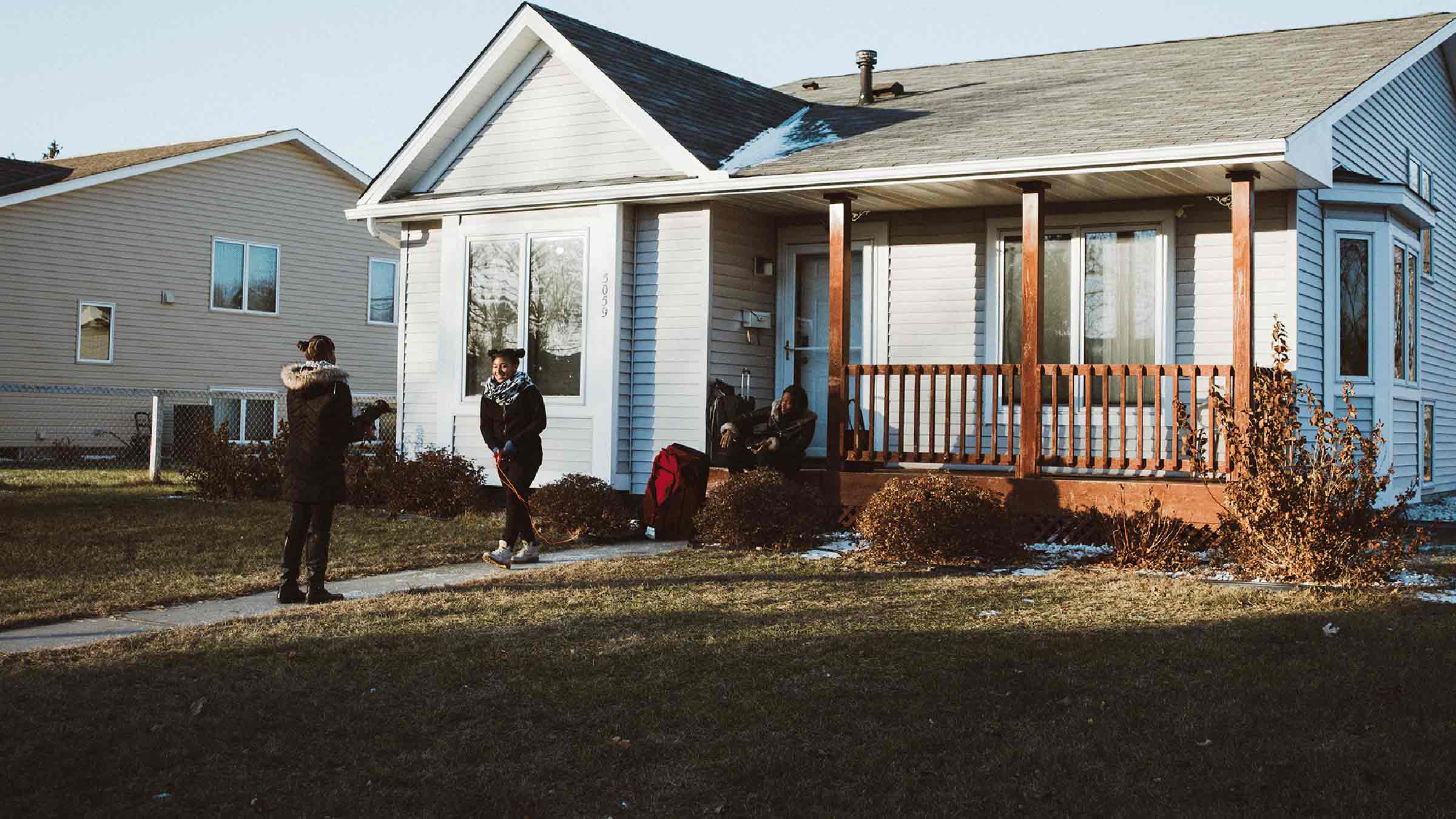
I began writing this blog post on December 21, the first day of winter, when we were being clobbered by a storm that dropped nearly a foot of snow. This was followed by multiple days of wind chills more than 20 degrees below zero – life-threatening weather, especially for the thousands of people across our region without a place to live. Significantly, December 21 was also marked across the nation as National Homeless Persons Memorial Day, honoring those who have died while experiencing homelessness and raising awareness of the impacts of not having a home.
Simpson Housing Services, a Greater Twin Cities United Way partner that serves hundreds of individuals and families each year, marks Homeless Persons Memorial Day each December with a community march and service, now in its 38th year. For the 2022 memorial, 153 names of those who were experiencing homelessness at the time of their death were read, as well as the names of 95 others who had been previously homeless. The average age of those memorialized was 44 years old; through the destabilization of work, school, childcare, health and community connections, homelessness is known to reduce life expectancy by an average of 20 years.
Housing is “step zero” to thriving in every other aspect of life. Yet, as a community and across the nation, we are facing a housing crisis – for every 100 very low-income renters in Minnesota, there are only 42 affordable homes. According to the National Low Income Housing Coalition, about 30% of all households in the Twin Cities region are renters earning an average of $18.70 an hour; yet, the average hourly wage required to affordably rent a 2-bedroom apartment is $25.15 per hour or, put another way, 1.3 full time jobs.
Unaffordable housing and homelessness have a cumulative impact on individuals and communities, disproportionately affecting communities of color impacted by the historic and current legacies of colonialism, disenfranchisement and discrimination. In these circumstances, impossible choices become routine. Housing or food? Housing or health care? Housing or transportation to work? The results are predictable – over 4000 households in the greater Twin Cities region have lost their housing in 2022 alone – and entirely preventable.
At Greater Twin Cities United Way, our vision for housing is that homelessness is prevented whenever possible, and when not, is rare, brief and nonrecurring. This is a broad vision that manifests into a deep investment and multi-pronged approach that not only responds to the life-threatening nature of homelessness, but also prioritizes employment, food security and educational strategies that help to prevent homelessness.
Stable housing is the key to success in school, work, health, family and community life; in this new year, we must invest more deeply than ever in preventing and ending homelessness. Join us today with your investment: acts like making a meaningful gift, engaging with Homeless Day on the Hill or taking on a project with Volunteer United will advance the work toward equitable and welcoming communities where everyone has a home.